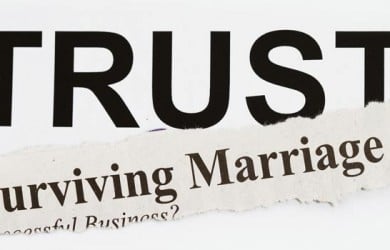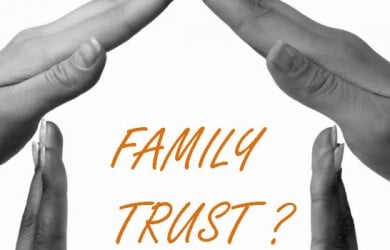How to Be Honest in a Relationship: 12 Practical Ways

 Listen to this article
Listen to this articleIs honesty really the best policy? Whether you’ve been on the giving or receiving end of relationship deceit, you know that nothing crushes love quite like a web of lies. That’s why learning how to be honest in a relationship is so important.
Everyone has their reasons for being dishonest. They may want to avoid getting “in trouble” or to avoid relationship conflict. They are little white lies and lies to cover a wrong committed.
Whatever the cause, dishonesty can quickly spiral out of control and ruin the amazing relationship you’ve been building. Your relationship must be honest and truthful if it’s going to succeed. Learning, to be honest, isn’t always easy, but it is always worth it.
So are you asking questions such as: Do little white lies count as relationship deception? How honest should you be in a relationship? What are some examples of honesty? Keep reading to find out why it pays to be honest in romantic relationships.
6 reasons why honesty is important in a relationship
The first step toward being honest in a relationship is understanding the benefits of being truthful and why it’s so essential. Here are 6 upsides to being truthful in your relationship:
1. Honesty is a teacher
As you start your journey of being honest in a relationship and experience both easy and difficult examples of honesty in your own life, you will learn and grow as a person.
2. Your partner will trust you
It is no surprise that couples who trust each other experience more fulfilling relationships. When you display honesty and trust in a relationship, you deepen your connection to your spouse.
3. You will be a better friend
Being honest is one of the top qualities of a good friend. They have integrity, are trustworthy, and are dependable. Your friends will appreciate the step toward honesty you take every time you tell them the truth.
4. You will have a good reputation
Another great reason to learn how to be honest in a relationship is that people respect someone who is honest and truthful. Your reputation at work, in love, and with friends will be impeccable when you regularly tell the truth to those around you.
5. You’ll create peace in your relationship
Lies create chaos in a relationship. On the other hand, when building honesty in a marriage or relationship, there are no lies to keep track of and no hurt feelings to take care of. Your relationship is peaceful.
6. It deepens emotional intimacy
Emotional intimacy is an unmatched closeness.
Studies have shown that emotional intimacy helps couples buffer daily stress and enhances romantic well-being and sexual satisfaction.
An unparalleled connection nurtures a safe space where both individuals feel valued and understood, allowing for open communication and shared vulnerability.
How to build more trust and honesty in a relationship
The step toward honesty that can be the most challenging is learning to be patient. Being honest in a relationship isn’t always easy, especially for those with difficulty communicating.
Some common examples of honesty in a relationship include openly discussing feelings and concerns, admitting mistakes, sharing thoughts about the future, and being truthful about past experiences.
Keep at it. Don’t let yourself become frustrated or overwhelmed by it. Learn how to communicate with your spouse; the words will flow easily in time.
Learning how to be honest in a relationship also means taking a good look in the mirror. Being honest about your strengths and weaknesses can help you identify areas in your personality that could use some work – like your ability to tell the truth.
Ask yourself: Am I someone who frequently exaggerates? Do I always follow through on my plans? Do I try to wiggle out of situations where telling the truth will make me uncomfortable?
By doing a self-examination, you will become a more honest and truthful person.
How can honesty strengthen long-term relationships?
Honesty acts as the backbone of long-term relationships by encouraging trust, respect, and open communication. When partners are truthful with each other, it builds a foundation of trust, making it easier to handle conflicts and misunderstandings.
Honest communication in relationships encourages vulnerability, allowing partners to truly understand each other’s needs, fears, and desires. Such a deep level of understanding and acceptance strengthens the bond between partners, ensuring the relationship can withstand challenges and grow stronger over time.
12 ways to be honest in a relationship
Now that you know how important honesty is in relationships, it’s we look at how you can integrate honesty into your relationship. Here are 12 ways to show honesty and be more honest in your relationship:
1. Communicate openly with your love
One tip for how to be honest in a relationship is to talk to your spouse often. Couples who communicate openly about their feelings experience happier, more fulfilling relationships, but communication about a problem isn’t always easy.
Build an honest relationship by communicating your needs to your spouse. This should be done when:
- You want your spouse to know when you feel happy/sad/stressed/excited
- There is a problem in the relationship
- You need to confess something, or
- You simply want to get to know each other better
Even when the subject matter is difficult or uncomfortable, communicating will strengthen honesty and trust in a relationship.
Not great at pouring out your heart? We’ve got you covered. Even if you’re not ready to get married, our pre-marriage course can help you build better communication, problem-solve as a team, and build a more robust overall relationship.
2. Make the choice to be faithful
When we think of honesty in a relationship, we often think of the issue of fidelity first. Part of being honest and truthful in a relationship is to be loyal in mind and body.
When you purposely spend time with someone you are attracted to (emotionally or physically) other than your partner, you choose to be tempted.
When you refuse to be put in potentially compromising situations with others, you choose to be faithful. Even when nobody is watching, choosing to be faithful creates a loyal heart your partner can trust.
3. Do unto others
The step toward honesty that is easiest to remember is this golden rule. “Whatever is hurtful to you, do not do to any other person.”
Don’t do anything to your spouse that you wouldn’t want them to do to you. This would include flirting with other people, conducting an inappropriate emotional relationship with someone else, or sharing personal information about them with others.
4. Surround yourself with honest people
Another tip for how to be honest in a relationship is to have honest friends. People tend to take on the characteristics and qualities of the closest people.
One way you can learn how to be more honest with your partner is by having good examples of honesty in your own life. Having friends who are wonderful listeners and confidants will inspire you to take trust seriously.
5. Be kind when being honest
How honest should you be in a relationship? Remember that being honest in a relationship doesn’t mean being rude.
Relationship honesty doesn’t mean yelling out the cold, hard truth, especially when unprompted. Your job isn’t to truth-bomb your spouse into an argument or to make them feel bad about themselves.
Instead, use tact and be respectful when speaking to your partner. This will ensure your relationship honesty works toward building trust, not hurt feelings.
6. Don’t be afraid to say you don’t know something
One key to learning how to be honest with someone is admitting ignorance. It can be hard to admit when we don’t know what a word means or aren’t up on the latest social or political issues.
However, you can create a reputation as someone honest and truthful when you choose to say, “I’m not very that educated on the subject. Can you share your thoughts with me?” instead of blindly guessing through a conversation.
7. Follow through on your promises
One of the biggest tips for being honest in a relationship is to say what you mean and do what you say.
- If you promise your spouse you will pick them up from work, be there on time.
- If you tease an exciting date night, follow through and plan the best date.
- If you say you’ll call or text during lunch, do it.
The more you follow through on your word, the easier it will be to build trust with your spouse. Of course, some situations beyond your control may occasionally prevent you from living up to your word. This is understandable, so long as it doesn’t become a habit.
You can build honesty in a relationship by following through on your promises and showing your spouse you are dependable and trustworthy.
8. Admit when you are wrong
How honest should you be in a relationship? When it comes to admitting you are wrong, very.
Nobody likes stubborn love. When you are wrong, don’t be afraid to admit it. Being honest about your part in an argument or wrongdoing is difficult, but lying to your partner or blaming them for something they didn’t do is gaslighting.
Show your partner that you love and respect them and that they can trust you even under difficult circumstances by admitting when you are in the wrong.
9. Keep secrets a secret
When your spouse trusts you, they are willing to be vulnerable and share their deepest thoughts and fears with you. How would it feel for them if they knew you were sharing these vulnerable truths with your friends, family, or coworkers? They would be devastated.
Studies indicate that when someone is unreliable, dishonest, and secretive about personal activities, it erodes trust, diminishing commitment and effort in maintaining a relationship. This lack of trust severely impacts the willingness to invest in and work on the relationship.
Once honesty in a relationship is lost, it is nearly impossible to get it back to where it used to be. Don’t lose your partner’s trust. Show them you are loyal and loving by keeping their secrets locked in your heart.
10. Don’t embellish
Another tip on how to be honest in a relationship is to retrain how you think. An example of honesty in this regard includes not embellishing the stories you tell.
We know that exaggerations make for a great story, but they also make it difficult for your partner to trust the severity of what you’re saying. Frequently adding white lies to stories also trains your brain to think of small lies as acceptable.
The more comfortable you become with telling white lies, the easier it will be to transition to bigger falsehoods. Learning to be truthful when relaying stories and conversations will improve your honesty.
Watch this TED Talk where Jennah Dohms talks about how honesty can transform your life and relationships for the better:
11. Practice self-reflection regularly
Taking time for self-reflection is essential for maintaining honesty in your relationship. It involves critically evaluating your thoughts, feelings, and actions and understanding how they affect your partner and your relationship.
You can communicate more openly and honestly with your partner by recognizing your shortcomings and improvement areas. This self-awareness enables a culture of transparency and encourages both partners to be more genuine with each other.
12. Respect your partner’s perspective
Honesty also means respecting and valuing your partner’s perspective, even when it differs from yours. Actively listen to what they have to say without judgment or interruption.
Acknowledge their feelings and viewpoints, and strive to understand their origin. This respectful approach not only deepens your connection but also creates a safe environment for both partners to express their true selves. You build a stronger, more honest relationship by embracing and respecting each other’s perspectives.
FAQs
If you want to maintain honesty within your relationships, it’s common to have questions. Here are answers to some frequently asked questions to guide you through understanding and managing truthfulness in your relationship.
-
Is it ever okay to lie in a relationship?
Occasionally, minor lies to protect your partner’s feelings or surprise them positively can be permissible. However, lies about significant issues erode trust and intimacy. It’s crucial to weigh the intent and potential impact of withholding the truth.
-
How can I tell if my partner is being honest with me?
Honesty can be gauged through consistent actions, open communication, and reliability. If your partner’s words align with their behavior over time and they’re transparent about their thoughts and feelings, it’s a good sign they’re being honest.
-
What are some signs of a dishonest relationship?
Signs include frequent inconsistencies in stories, reluctance to share details about certain topics, defensive behavior when asked simple questions, and a general feeling of mistrust. These red flags indicate possible dishonesty in the relationship.
-
How can I rebuild trust after a lie?
Rebuilding trust requires a sincere apology, transparency, and consistent behavior over time. The offending partner must be open about their actions, commit to honesty moving forward, and show that they are trustworthy through their actions.
-
Does complete honesty mean sharing everything?
Complete honesty doesn’t require sharing every thought or detail but being truthful about matters that affect the relationship. It’s about maintaining transparency and integrity on significant issues while respecting each other’s privacy and boundaries.
Wrapping up
Learning how to be honest in a relationship is always worth the effort. By showing honesty and trust in a relationship, you build a deeper connection with your partner and a great reputation with others in your life.
You can build an honest relationship by communicating with your partner, examining your behavior, and choosing to surround yourself with honest people.
The golden rule is an excellent baseline for honesty. Don’t do anything to your spouse that you wouldn’t want to be done to you. By choosing to be faithful and true, you are building the foundation of a lasting and happy relationship.
 Expert Q&A
Expert Q&A
Trusted by +5 Million People
Ask your question related to this topic & get the support you deserve from experts.
 Tips
Tips
Share your valuable relationship tips with +5 million people
Share this article on
Want to have a happier, healthier marriage?
If you feel disconnected or frustrated about the state of your marriage but want to avoid separation and/or divorce, the marriage.com course meant for married couples is an excellent resource to help you overcome the most challenging aspects of being married.
Learn More On This Topic

Finance
What Is a Marital Trust? Benefits, Types and How It WorksBy Marriage.com Editorial Team, Relationship & Marriage Advice

Infidelity
How to Survive Infidelity and Restore Trust in a MarriageBy Marriage.com Editorial Team, Relationship & Marriage Advice

Relationship
How to Resolve Trust Issues in a Relationship – Expert AdviceBy Duane Osterlind, Marriage & Family Therapist

Communication
10 Trusted Tips For Encouraging Communication With Your SpouseBy Marriage.com Editorial Team, Relationship & Marriage Advice

Relationship
15 Ways on How to Build Trust in a RelationshipApproved By Angela Welch, Marriage & Family Therapist
You May Also Like

Emotional Intimacy
What To Do When You Feel No Emotional Connection With Your HusbandApproved By Angela Welch, Marriage & Family Therapist

Romance
35 Romantic Games for Couples to Fan the Flames of LoveApproved By Angela Welch, Marriage & Family Therapist

Love
What Is Love? Meaning, History, Signs and TypesApproved By Angela Welch, Marriage & Family Therapist

Zodiac Signs
According to Zodiac Signs: the 3 Best Women to MarryBy Marriage.com Editorial Team, Relationship & Marriage Advice

Romance
The Role of Romance in a Relationship and its ImportanceBy Kelli H, Licensed Clinical Social Worker

Intimacy
How Important Is Intimacy in a RelationshipApproved By Christiana Njoku, Licensed Professional Counselor

 Thanks for your feedback!
Thanks for your feedback!















 We'd love your feedback!
We'd love your feedback!